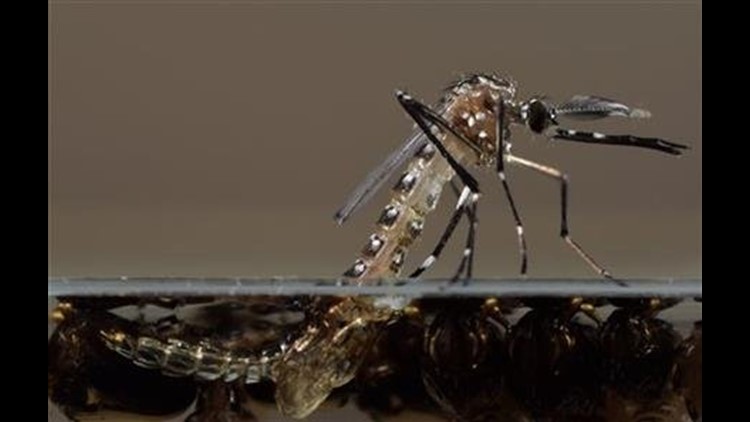NEWINGTON — The Department of Public Health says that two people in Connecticut have the West Nile Virus.
One person is from Fairfield, and the other is a resident of Newington. DPH says they have tested positive for the virus. These are the first two human cases of West Nile this season in the state.
The patients, who are between 60-79 years of age, became sick during the last week of July with encephalitis, were hospitalized, and are now recovering.
One still remains hospitalized.
DPH says the people did not travel out of the state before becoming sick.
“We continue to have weather conditions that are favorable for the mosquitoes that transmit West Nile virus,” said Dr. Philip Armstrong, Medical Entomologist at the Connecticut Agricultural Experiment station, ” These mosquitoes are most abundant in urban and suburban areas with dense human populations.”
“Using inset repellent, covering bare skin, and avoiding being outdoors during the hours of dusk and dawn are effective ways to help keep you from being bitten by mosquitoes,” says DPH Commissioner Dr. Raul Pino.
Public health officials also said an unusually high number of mosquitoes have tested positive for West Nile virus on Cape Cod.
The Cape Cod Times reports that state Department of Health said Thursday 14 mosquito samples from Falmouth, Barnstable, Dennis, Bourne and Yarmouth tested positive for the virus after being trapped Tuesday and July 31.
Gabrielle Sakolsky, assistant superintendent with the Cape Cod Mosquito Control Project, says they had nine samples test positive for the virus for the whole season last year.
Health officials say the virus has been detected in 169 mosquito samples from across the state.
No human or animal cases of West Nile virus have been detected in the state this year.
State officials recommend people use mosquito repellent and wear protective clothing.
Tips for avoiding mosquito bites, and breeding:
- Eliminate standing water suitable for mosquitoes. Dispose of water-holding containers, such as ceramic pots, used tires, and tire swings.
- Drill holes in the bottom of containers such as those used for recycling.
- Clean clogged roof gutters.
- Turn over objects that may trap water when not in use, such as wading pools and wheelbarrows.
- Change water in bird baths on a weekly basis.
- Clean and chlorinate swimming pools. When pools are not in use, use pool covers and drain when necessary
- Be particularly careful at dusk and dawn when mosquitoes are most active.
- Wear shoes, socks, long pants, and long-sleeved shirts. Clothing material should be tightly woven.
- Use mosquito netting when sleeping outdoors.
- Consider the use of CDC-recommended mosquito repellents, containing DEET, picaridin, oil of lemon eucalyptus, IR3535, or 2-undecanone, and apply according to directions, when it is
necessary to be outdoors. - When using DEET, use the lowest concentration effective for the time spent outdoors (for example, 6 percent lasts approximately two hours and 20 percent for four hours) and wash treated skin when returning indoors. Do not apply under clothing, to wounds or irritated skin, the hands of children, or to infants less than two months old.
- Also, be sure door and window screens are tight fitting and in good repair to avoid mosquito bites when indoors.



